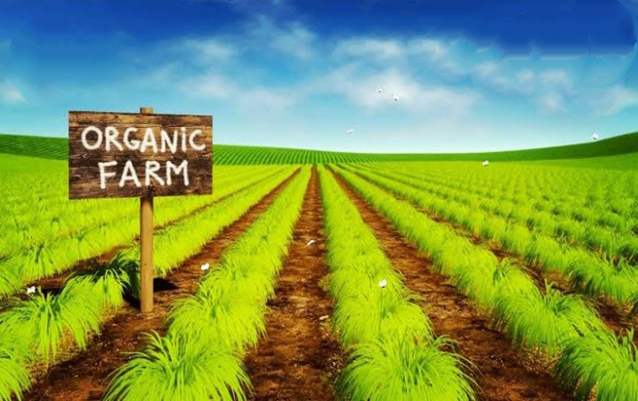
Organic farming is the best and most alternative for traditional forming tecqunicis. The producer of organic forming has high nutritional value in comparison to conventional food.
Organic farming help in reducing soil pollination and air pollination. Use of harmful chemical fertilizers and pesticides will poison our food cycle. India has the most organic farmers in the whole world
The only disadvantage of organic farming is costlier in comparison to conventional farming method. Consumption of organic food has many health benefits as compared to conventional food. The two types of organic farming are pure organic forming and integrated organic forming. The economy of scale cannot be achieved through organic farming since the production is in smaller amounts in comparison to conventional agriculture method. Health conscious consumers around the world are increasingly demanding organic foods in the market.
Feeding of increasing population of India is difficult with organic forming alone. Sudden switch over to completely organic is not possible. Moreover higher premium prices exist for organic certified products in domestic and international markets.

Organic farming is a modern and a sustainable form of agriculture that provides consumers fresh natural form products. Organic farming works in synchronisation with nature rather than against it. This objective is achieved by using techniques to improve crop yields without harming the nature environment as well as the people who live and work in it. Organic agriculture offers an exclusive amalgamation of environmental – friendly practice, which requires low external input, thereby contributing to increased food availability.
Organic forming has a very positive influence especially on Bird, insects, weeds wildlife, and soil flora and fauna. Conventional farming is capital intensive, which requires more manufactured inputs and energy as compared to knowledge and labour – intensive organic farming. Organic agriculture uses energy more competently than conventional agriculture. As compared to conventional agriculture, organic farming products cost – effective food products, free of synthetic fertilizers and pesticides. It also provides employment opportunity and economic benefits to local communities. The methods utilised in organic farming are more costly and labour intensive, but prove to be more cost effective in the long run. Since organic agriculture supplies more greenhouses gasses in the soil, the farmers across the globe can solve the climate disaster by switching to organic methods.
In Addition, organic agriculture has the potential to address food security issues. Enough evidence is available to prove that organic crops are a better of nutrients then there corresponding conventional forms. Organic system give higher animal immunity and increased diseases resistance to plants, with 50% less mycotoxins in crops and persistent shelf life.
YAMUNA.R.MYLI
1st M.Sc PSYCHOLOGY
KATEEL ASHOK PAI MEMORIAL INSTITUTE- SHIVAGOGA
